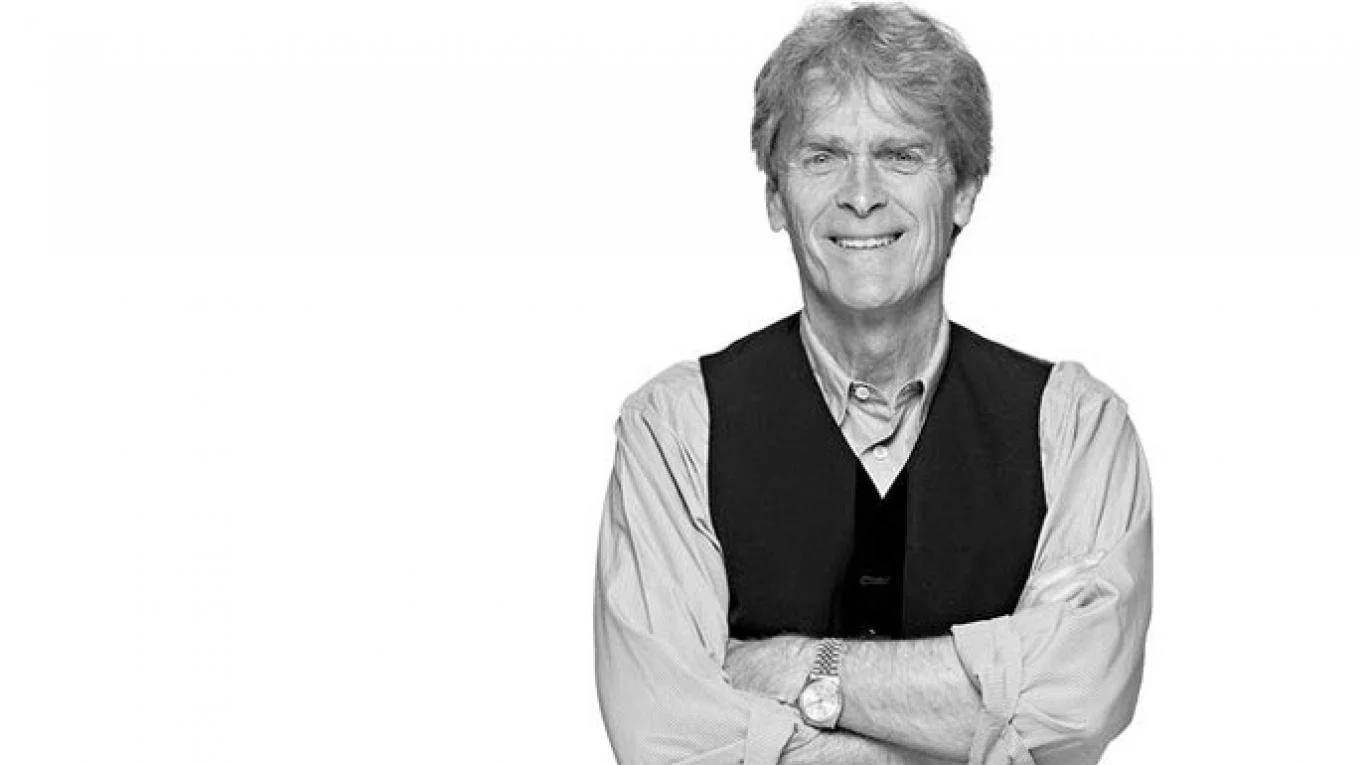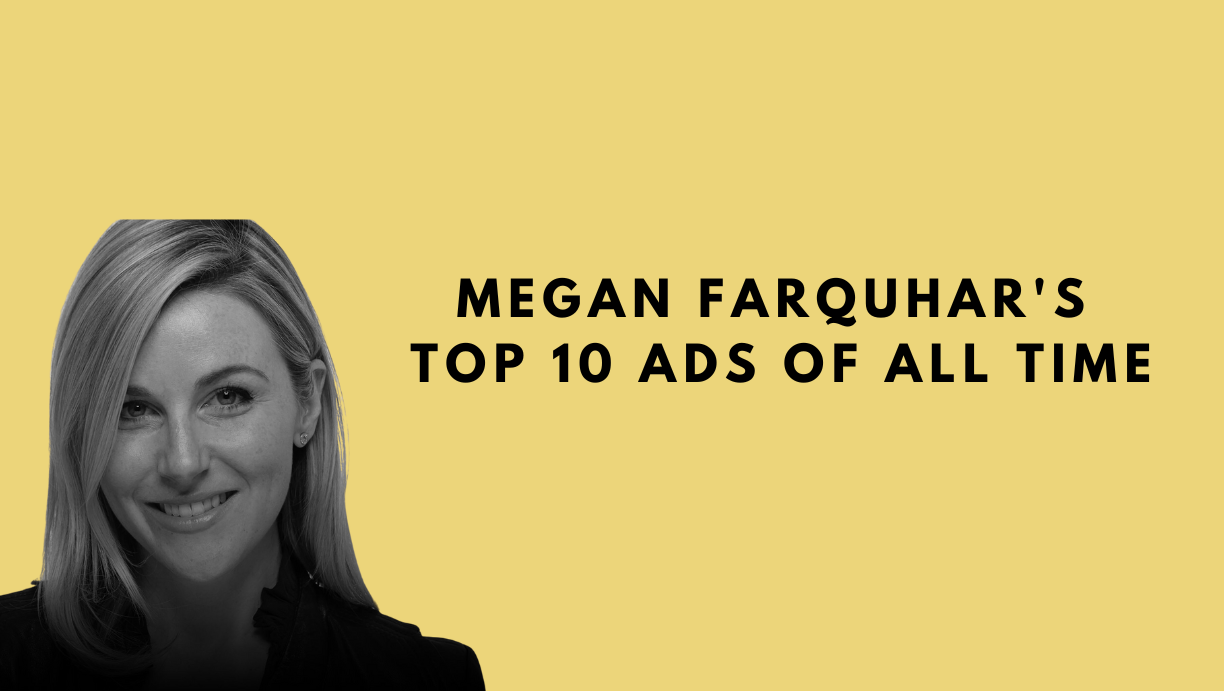Rory Sutherland's Top 10 Ads of All Time
“The power of reframing things cannot be overstated.”
Rory Sutherland is Ogilvy UK's Vice-Chairman and former IPA President. He’s the author of ‘The Wiki Man’ column in The Spectator magazine and the wonderfully entertaining book, Alchemy: The Power of Ideas That Don’t Make Sense.
He founded Nudgestock, ‘the Glastonbury for nerds’ and is a Behavioural Economics evangelist.
Rory is also the brilliant mind behind our overwhelmingly popular Behavioural Economics masterclass.
We asked Rory to pick 10 of his favourite ads, and here they are:
1. The Overground
It’s not an advertising campaign per se and has never won a single advertising award, to my knowledge, but it is one of the most ingenious examples of branding and marketing ever.
Why?
Because before it was renamed as The Overground, 95% of the track and services had existed for over 100 years.
But, because it was feebly branded and didn’t appear on London’s Tube map, nobody knew what to call these routes, nor make sense of where they went or how they might be useful.
This was not purely a branding campaign.
Transport for London revamped the rolling stock, improved the stations, and built a few miles of extra track. But from a ghost train in the 1990s, The Overground now carries as many passengers as the Elizabeth Line, but at a minute fraction of the Elizabeth Line’s £20bn cost.
Most of this was achieved not with track-laying but with ink, pixels, branding and psychology. In other words, it’s advertising. One of the most successful campaigns ever in terms of ROI.
2. Dos Equis - ‘The most interesting man in the world’
This is the campaign I would have most enjoyed working on as a copywriter.
A particular bonus is the second-end line. Alongside ‘Stay thirsty, my friends’, there is ‘I do not always drink beer, but when I do, I prefer Dos Equis.’
This is not only plausibly honest – the most interesting man in the world would not stick to one drink or one brand – but also is a neat expression of the findings of the Ehrenberg Bass Institute on consumer repertoires.
You can view all the Dos Equis ads HERE.
Agency: Euro RSCG New York, 2006 – 2016
3. Mercedes-Benz - ‘Lucky Star’
A completely original ad, which appeared to be an ad for something else – in this case, a film. I thought it was the stand-out ad of the decade. And yet, it hardly won anything.
I asked the D&AD jury president why this was. ‘Half the jury loved it; the rest couldn’t understand it’. This is a perennial problem with original ideas and awards – the newest ideas generally polarise people.
Not many ads have a Wikipedia page, but this one does. Oh, and you can watch the ad HERE.
Agency: Campbell Doyle Dye, 2002
4. De Beers - ‘How else can a month’s salary last a lifetime?’
What person versed in behavioural science wouldn’t admire this fabulous piece of value framing?
Along with Stella’s ‘Reassuringly Expensive’, it is one of the best pieces of positioning ever. In the 1980s, De Beers upped the ante from one month to two months’s salary.
In 1999, ‘A diamond is forever’ was named the best advertising slogan of the century. Read about it HERE.
Agency: N.W.Ayer, 1938 – 1995
Copywriter: Frances Gerety
5. The Horsepower
Copywriter James Watt. Yes, that James Watt. Having invented the steam engine, Watt needed to flog it.
He rapidly discovered that the target audience - mine owners who used horses to provide the motive power to drain the mines did not want to hear about stroke length and piston capacity.
They simply wanted to know how many horses they could dispense with if they bought a steam engine. So Watt invented a metric, the Horsepower, which answered their question.
It’s still in use today.
6. AVIS - ‘We’re number two, so we try harder’
Along with Guinness beer’s ‘Good things come to those who wait’, this campaign performs the deft trick of turning a weakness into a strength. It’s an example of ‘alchemy’ at its best, turning lead into gold.
Read about it in The Denver Post HERE.
Agency: DDB New York, 1962
Copywriter: Paula Green
7. American Express - ‘Quite frankly, the American Express Card is not for everyone’
It’s the opening sentence of a piece of direct mail that American Express used for many years to acquire new Cardmembers.
By one calculation, it made them over $2 billion. Brilliant positioning married to clever writing. Any two words other than ‘Quite frankly’ would have missed the mark.
Agency: Ogilvy & Mather Direct, New York, 1974
Copywriter: Bill Trembeth
8. Netflix - ‘Coupon’
Three DVDs for $19.95 a month. Replace them whenever you like—no late fees – ever.
Far and away the least elegant line on my list, it is nevertheless an example of a killer proposition.
Until Netflix came up with this formula, they were an also ran. Blockbuster Video turned down the opportunity to buy them for $50m, but this was before they hit on this magic formula.
Marketing isn’t just about getting the ads right – it’s about getting the pricing right. Once this offer became available, why would you buy a DVD when you could watch three or more a month for the same money?
Again, this is a great example of framing.
9. International Correspondence Schools - ‘Here's an extra $50, Grace – I’m making real money now’
Financial or money-making ads are prone to be highly transactional and factual and lose sight of one thing – money is an emotive subject. This ad translates a financial benefit into an emotional gain.
Years later, following the popularity of the film Honey, I Shrunk the Kids, a UK Building Society followed the same path with posters reading ‘Honey, I shrunk the Mortgage.’
A large part of people’s motivation is to help their families, not themselves.
This insight came in handy when we had to sell broadband for BT. Any mention of the advantage to a child’s education was highly potent to anyone with school-age children.
Client: I.C.S., 1919
Copywriter: Paul V. Barrett
10. A restaurant notice in St Emilion, France, asking people to turn off their phones
Almost any restaurateur wanting patrons not to use mobile phones at the table would post a notice at the entrance saying, ‘We kindly request patrons not to use mobile telephones.’
It would work, but tonally, it is a bit bossy and inclined to create a certain resistance. This restaurant did something different.
They posted a notice ostensibly aimed at people leaving the restaurant, stating, ‘Please remember to turn your mobile phone back on when leaving the restaurant.’
But the notice was visible to people when they arrived, cunningly implying that it was a social norm, not an owner's instruction not to use phones at the table.
This is also a reminder that cunning targeting and media placement often form an integral part of persuasive communication. This is why the separation of media and creative agencies was so unforgivably dumb.
If you’re down for more of Rory’s wisdom and wit, why not read The Best of Rory Sutherland, 42 of Rory Sutherland’s Best Quotes or Rory Sutherland’s 11 Rules of Alchemy?
















